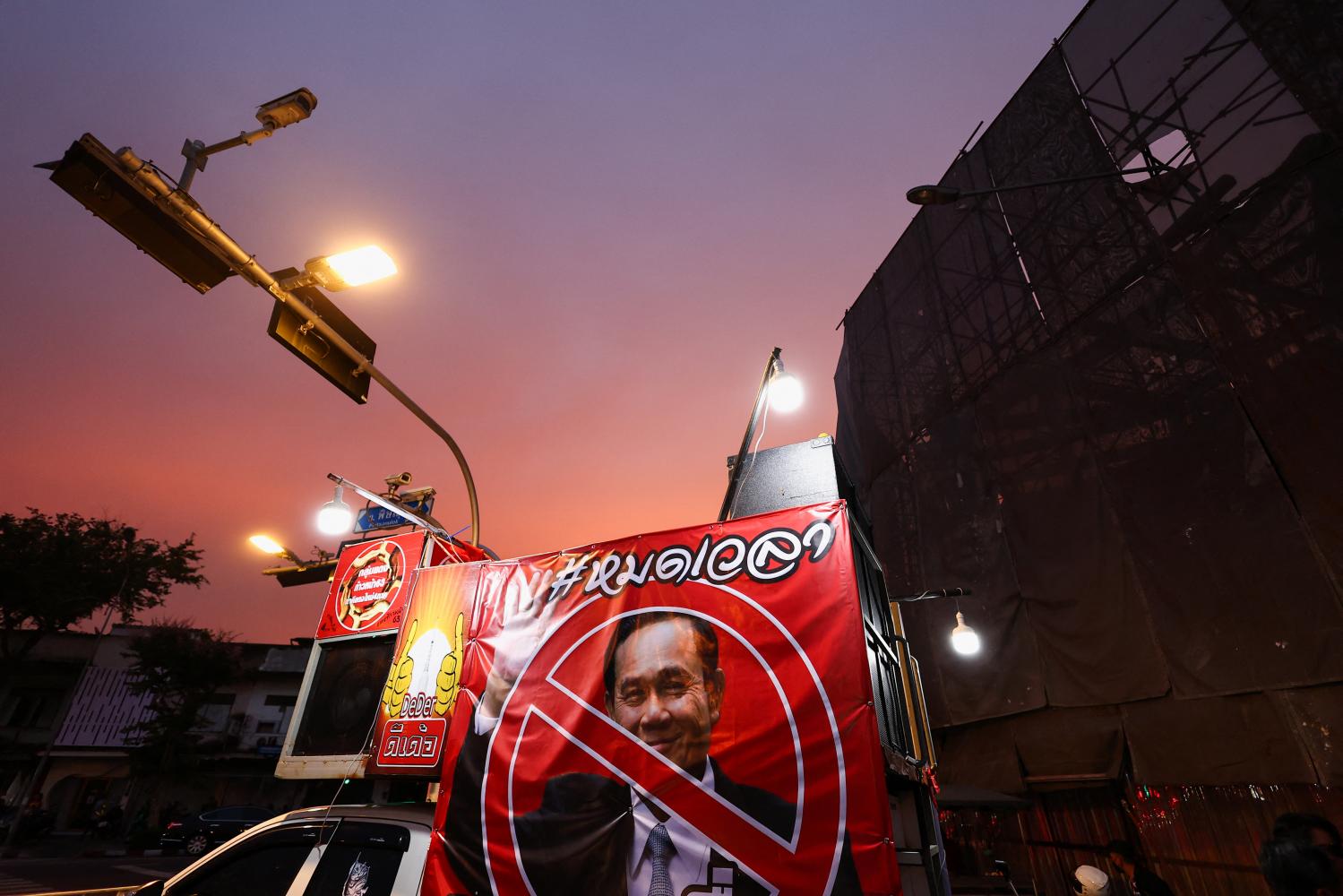
In the face of the myriad of questions and issues that beset Thai politics in the lead-up to the general election, which must be held by May 7, the biggest facts and dilemmas are not being raised. Prime Minister Prayut Chan-o-cha is now headed to complete nine years in office, the first five of which were under a military government after he and his cohorts seized power by force in May 2014, and the last four under an elected coalition government enabled by the 2017 constitution crafted by a committee the ruling generals had set up. Moving forward, Thailand risks settling into a prolonged period of economic stagnation and political decay unless there is a qualitative change of government after the poll.
As direct and disguised authoritarian rule has become increasingly entrenched in recent years, the main institutions, policymakers, political actors, and adjustment mechanisms have been compromised and co-opted. This means that Thai mainstream media is not investigating and asking tough questions about government performance and the role of traditional institutions, such as the military and judiciary. Instead, the Thai media has more or less conveyed government policy lines and preferences on a routine basis, failing to protect and promote the public interest.
In other areas, the consolidation of authoritarian governance under a royalist-conservative regime, armed with political coercion and legal persecution, has resulted in what is arguably the most systematic co-optation Thailand has ever seen. From diplomats and academics to key policy-making agencies, such as the Bank of Thailand (BOT) and the Public Debt Management Office (PDMO), tough questions and hard-nosed work for the public good have taken a back seat in favour of kowtowing to the power holders.
The BOT is regularly trespassed on and interfered with by the finance minister, whose comments and positions have impinged on interest and exchange rates time and again. If one wants to know whether the baht will appreciate or depreciate over time, it is necessary to listen to what the minister says rather than what the central bank governor thinks. While Gen Prayut has incurred the highest debt load in Thai economic history -- more than US$100 billion (3.4 trillion baht) in nine years or more than 300 billion baht per year on average -- the meek PDMO has justified how this is all sustainable, even as it breaches the disciplinary threshold of 60% of GDP.
Thailand's macro-policy agencies -- anchored around the institutionally autonomous central bank, including the budget bureau, fiscal policy office and the National Economic and Social Development Council -- normally form the backbone and backstop of the country's economic management. No matter how ugly and nasty politics become, these agencies traditionally provided cushion and continuity to propel economic growth.
The senior officials of these agencies usually had to rely on their credibility, expertise and integrity to bargain with elected politicians and vested interests. Their main weapon in the cut-and-thrust of politics was the moral high ground for public interest and the willingness to resign rather than sell out.
No major macro-policy agencies are taking the government to task and standing up for public interest today. On the contrary, the temptation to go along, get by, buy in, and sell out has become more evident. Academics that used to research and look for ways to reform the military- and police-dominated radio and television have joined regulatory agencies and committees that turn a blind eye to such undue military interests and influence.
In the face of it, the pull of complacency and self-reassurance is strong. In the near term, many are pointing to positive economic growth, higher tourist numbers, and more foreign investment in the face of global headwinds. But in reality, Thailand's trend growth and economic trajectory are settling into a 3% plateau for the medium term with downside risks in the absence of major structural reforms of policy regimes dealing with investment, immigration, and innovation for new growth areas in the digital era, underpinned by education and skills-training that are globally competitive.
It is hard to see on a day-to-day basis that Thailand is becoming an also-ran, second- or third-rate economy that is failing to fulfil its immense potential.
This is not to say that Thailand will go down the drain. It is still attractive to many for its central location in Southeast Asia, natural endowments and hospitable and resourceful people. It just will hover down here rather than up there.
Grasping this reality and dilemma is not hard if we look at Vietnam or Indonesia's forward movements and upward scaling, or if we look at how much better Thailand was doing 20 or 30 years ago, not the past decade. There will be much ink to spill in analysing the political charades and machinations in the weeks ahead, but no one should have any illusions about the post-poll government.
If this concocted coalition government that came out of the March 2019 election is effectively maintained next year, the damage to the Thai economy and politics will become more irreparable, as evident in the lack of growth directions and strategies going forward and in the declining public respect and confidence in the traditional institutions from the military and monarchy to the judiciary and bureaucracy.
While all national elections are critically important in any country, Thailand's upcoming poll comes with the highest stakes. A fundamentally different coalition government under a different leader will be necessary if Thailand is to rehabilitate and regain its footing.
